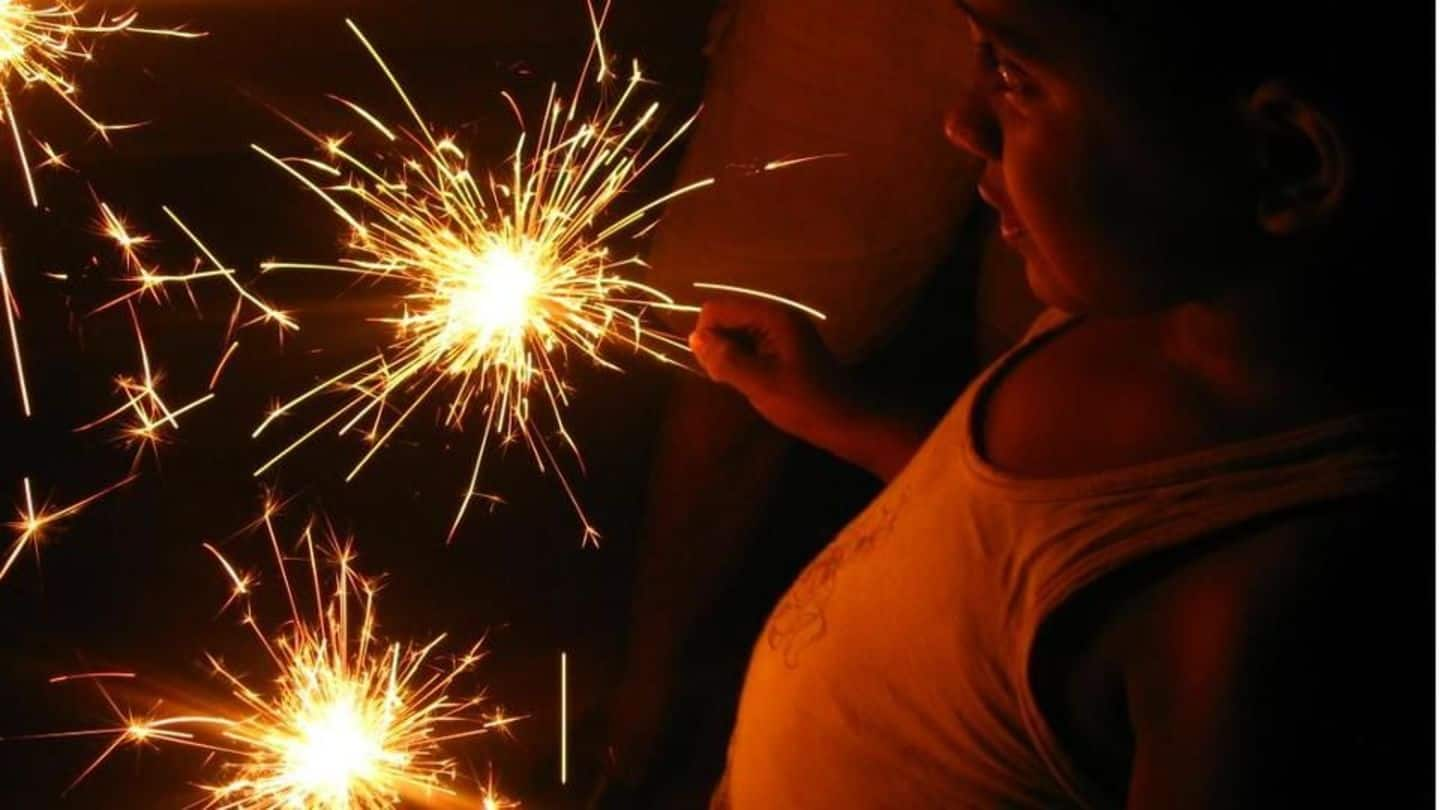
No firecrackers for Delhiites this Diwali, SC rules
What's the story
Delhiites will have to settle for a silent Diwali this year. In a bid to check pollution, the SC has ruled that no firecrackers would be sold on the festival this time.
In September, it had lifted a year-old old ban on sale of firecrackers, but it will come into effect only from November 1. Diwali is on October 19.
Details
1.2 million pollution deaths in India, Delhi worst
A report by Greenpeace found that 1.2 million people die in India every year due to air-pollution related causes; of this Delhi has topped their list of the 20 worst affected Indian cities.
The report added that none of the 168 cities surveyed complied with WHO pollution norms.
The report also claimed that India loses 3% of its GDP due to air pollution.
Data
2016 Diwali intensified Delhi's years-long battle against polluted air
Delhi has battled with air pollution for several years. Last year's Diwali worsened matters as Particulate Matter concentration rose to 10; PM 2.5, which is the "standard measure of air quality, was as much as 13 times the safe limit".
Terms
The lifting of the ban on firecrackers sale was conditional
In November'16, the SC had enforced a ban on sale of firecrackers. But a bench recently observed it's "an extreme step".
It had conditions though: licenses were capped at 500; transport of firecrackers from other states was prohibited; and bursting of crackers was allowed in "silent zones".
Earlier, it had banned the use of antimony, arsenic, lithium, lead, mercury and strontium chromate in firecrackers.
Measures
What else is being done to check pollution in Delhi?
Banning firecrackers isn't the only anti-pollution measure being enforced. In November'14, the NGT banned diesel vehicles in Delhi older than 15 years. It modified the order last July and instead banned diesel vehicles older than 10 years.
In December'15, the Delhi government announced that movement of private vehicles will be restricted to alternate days.
However, it was only implemented twice for two weeks each.
Options
Other possible solutions for the capital's pollution problem
If policies revolving around private vehicles are changed, an encouragement can be brought about in the usage of public transport.
Increasing parking charges, imposing charges for traffic-congestion and investing in buses and railway lines will help in the same.
Adopting new technologies like the spread of cleaner-burning cooking stoves and kilns amongst rural women will repress pollution.